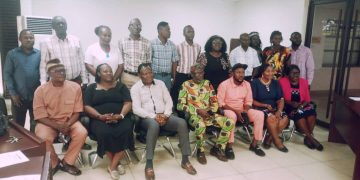By Kenneth Obieh
Delta State Chairman of the Civil Society in Malaria Control and Immunisation (ACOMIN), Pastor Greg Sifo, has urged communities to take ownership of the Primary Healthcare centres (PHC) in their localities.
The chairman stated this at the state media meeting on the global fund malaria community-led monitoring project implemented by Acomin to showcase their success stories in the eight local government areas they selected to work in.
Sifo noted that the National Malaria Strategic plan to transit from malaria control to malaria elimination should be consolidated by providing free Long Lasting Insecticide-treated Nets (LLINs) and deployment of volunteers to carry out interpersonal communication at the grassroots level.
Others are the provision of free malaria test kits and medicines at some health facilities to ensure accountability in malaria interventions in the Primary Healthcare centres in their communities.
He charged the Community Based Organisations (CBOs) to regularly make the community members own the PHC in their localities by utilising all the facilities provided for their benefit.
He further stated that they should protect the facilities from vandalisation and work in synergy with the health workers to benefit from the free health facilities before moving to the secondary or tertiary health facilities.
The state Programme Officer of Acomin, Sir Austin Uwede, disclosed success stories from the various PHCs engaged.
There were donations of a sphygmomanometer at Ofuoma PHC in Ughelli North; a drugs shelf at Umolo PHC in Ughelli South and signposts with repairs of bad pumping machine in Ekrerhavwen in Ughelli North Local Government Area.
Others were the donations of plastic chairs at Amukpe and Bulu -Apelebiri PHC in Sapele and Patani; connections of light from the national grid to Ogbe-Ogume PHC in Ndokwa with the repairs of leaking roof and provision of benches at Odovie PHC, among others.
Uwede thanked the CBOs for their impacts towards actualising the desired results of Acomin, saying that they would continuously see how they could resolve staff shortages and inadequate working tools across the PHCs in the state.













